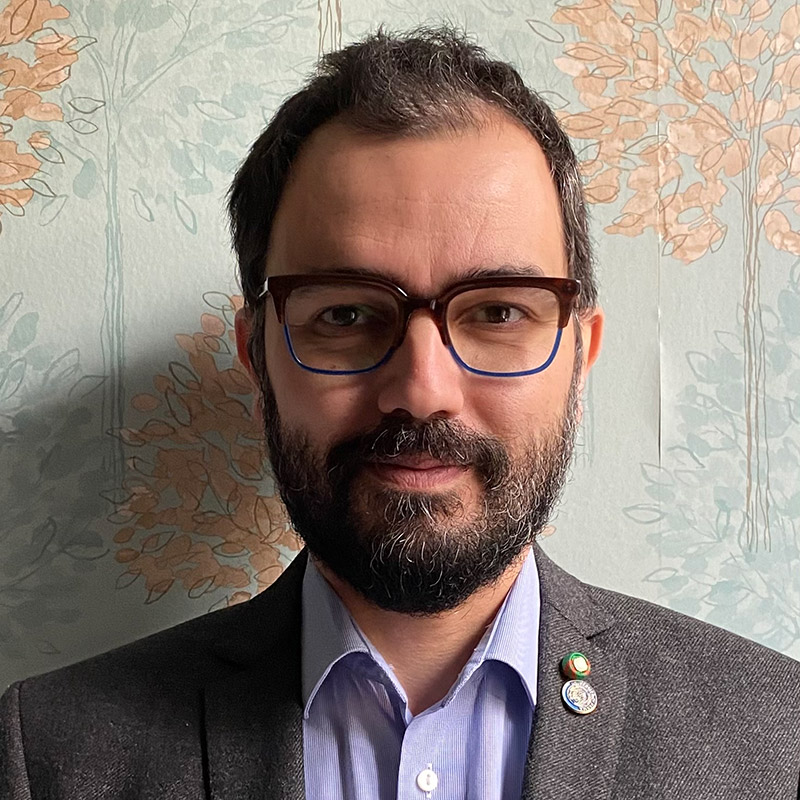Funded under the National Recovery and Resilience Plan (NRRP), Mission 4 Component 2 Investment 1.3, Theme 10.
From Trash to Treasure: How Recycling Food Waste Can Help Save the Planet
Professor Daniele del Rio, with contributions from Professor Matteo Vittuari, comments on a recent Nature Food study on repurposing food waste as a resource to combat climate change and its alignment with OnFoods' mission.


Daniele Del Rio
Matteo Vittuari
When we think about climate change, we often picture smokestacks, gas-guzzling cars, or plastic pollution. However, there’s a silent environmental villain hiding in plain sight: food waste.
A recent international study published in Nature Food, “Food waste used as a resource can reduce climate and resource burdens in agrifood systems”, confirms, using existing data from the Food and Agriculture Organization of the United Nations, that the way we dispose of food has a far greater impact than most of us realize.
In fact, if food waste were a country, it would rank among the world’s top greenhouse gas emitters. But here’s the good news: with effective strategies, that same waste can be transformed into a powerful climate solution.
Up to one-third of all food produced globally goes uneaten. It spoils on the shelf, is tossed from our fridges, or never even makes it off the farm. When this food ends up in landfills, it breaks down and releases methane—a greenhouse gas that’s over 80 times more potent than carbon dioxide in the short term. The study found that food waste alone is responsible for nearly half of the total emissions from the global agrifood system. That’s significant.
Instead of sending food to landfills, scientists explored three better alternatives:
- Composting (AC) – Converts waste into nutrient-rich fertilizer for crops.
- Anaerobic Digestion (AD) – Breaks down food scraps to produce biogas (a renewable energy source) and digestate (another type of natural fertilizer).
- Re-feed – Safely transforms food waste into animal feed, reducing the need for traditional crops like corn and soy.
Each of these methods significantly lowers emissions—up to 1 ton of CO₂ per ton of food waste—while also helping us conserve land, water, and energy.
If countries like the United States, the EU, and China adopted these methods to recycle all food waste instead of sending it to landfills, the study found we could:
- Cut agricultural emissions by 10% to 20%, depending on the country.
- Spare millions of hectares of land for nature or growing food for people.
- Save billions of liters of water along with thousands of tons of fertilizer and fuel.
For instance, in China alone, re-feeding food waste to animals could preserve as much land as the entire country of Belgium.
We already possess the tools. What we need now is policy support, infrastructure, and public awareness. This study conveys a clear message: we must transition from a “take, make, waste” food system to one that recycles and reuses—a circular bioeconomy.
It’s not just about cutting emissions. It’s about utilizing what we have more wisely, reducing pressure on our planet, and creating a more sustainable food system for the future.
The Bottom Line: Every orange peel, stale loaf, or leftover plate that ends up in a landfill represents a missed opportunity. By implementing smarter systems and enhancing our planning, we could utilize our food waste to feed animals, grow crops, power homes—and perhaps even save the planet.
From Global Solutions to Local Action: How OnFoods Is Leading the Way
The findings of this study align with the mission of our project. OnFoods is already embracing circular principles. From promoting local, low-waste food chains to exploring the reuse of agricultural by-products, the project advocates for a transition from a throwaway culture to one of regeneration and reuse, similar to the study’s recommendation to recycle food waste into compost, biogas, and animal feed.
Additionally, OnFoods focuses on prevention and reduction, which should precede regeneration and reuse if the ultimate goal is to achieve sustainability. OnFoods supports smart agricultural and food policies that empower producers, retailers, and consumers to minimize food loss and waste at every stage, from farm to fork. This includes investing in sustainable technologies, encouraging food innovation, designing inclusive food environments, promoting healthy consumption habits and mindful eating.
The final aim is the reduction of inequalities and enhancement of access to nutritious food. OnFoods integrates science-based strategies into real-world situations, collaborating with farmers, food producers, citizens, communities and institutions to lessen environmental impacts and maximise social benefits while enhancing the nutritional quality of our food.
Initiatives like OnFoods are contributing to the transformation of our food system to meet the ambition of making it more efficient, sustainable, fair, and inclusive.
Read also:
https://www.onfoods.org/magazine/valuable-waste-innovation-fight-against-food-waste

Daniele Del Rio
Full Professor in Human Nutrition
My team and I have investigated the link between plant foods and health for the last 15 years, with a specific focus on how plant secondary metabolites are absorbed, transformed by human and microbial enzymes and how they might affect human physiology and protect against chronic diseases. These results have been achieved using several in vitro and in vivo experimental models and through the design and application of human intervention studies.

Matteo Vittuari
Associate Professor, Department of Agricultural and Food Sciences Delegate for Cooperation and Development



